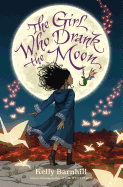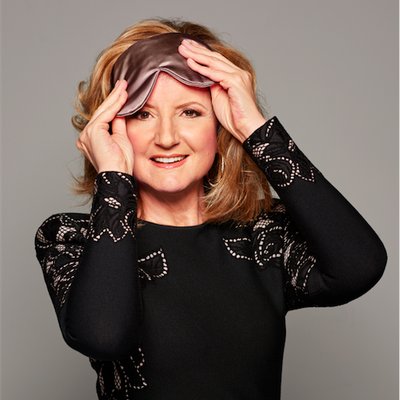 Arianna Huffington is the co-founder, president and editor-in-chief of the Huffington Post Media Group and author of 15 books. The Sleep Revolution: Transforming Your Life, One Night at a Time, on the science, history and mystery of sleep, was recently published by Harmony.
Arianna Huffington is the co-founder, president and editor-in-chief of the Huffington Post Media Group and author of 15 books. The Sleep Revolution: Transforming Your Life, One Night at a Time, on the science, history and mystery of sleep, was recently published by Harmony.
On your nightstand now:
Originals by Adam Grant and Hanya Yanagihara's A Little Life, which comes highly recommended by my daughter.
Favorite book when you were a child:
I would read ANYTHING. My love of books was so all-encompassing that I remember sending my friends home early from my fifth birthday party because all that celebrating was keeping me away from what I really wanted to be doing--reading!
Your top five authors:
Shakespeare: everything, but especially The Tempest.
Marcus Aurelius: Meditations is my favorite. He was a true paradox--an emperor with almost unlimited power to control his world and circumstances, who nevertheless had a deep understanding that happiness and peace do not lie in the outside world.
Constantine Cavafy, the Greek poet: growing up in Athens, my favorite poem was "Ithaka." My sister Agapi and I had memorized the poem long before we could actually understand what it meant.
Aleksandr Solzhenitsyn: in his novel The First Circle, he asked: "If you wanted to put the world to rights, who should you begin with: yourself or others?"
Yuval Harari: I love his book Sapiens, full of fascinating insights about our past and our future.
Book you've faked reading:
The Asian Drama by Gunnar Myrdal. In college it was on my economics syllabus, and my tutor asked me how much of the book I had read. I told him I had read all of it, to which he replied, "Even the author has not read all of it." I still remember blushing to my roots!
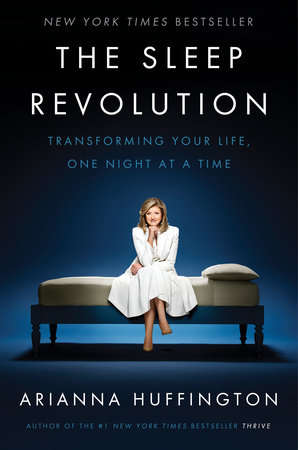 Book you're an evangelist for:
Book you're an evangelist for:
I love books that use the power of stories to make us see the world in a different way. In the 1840s, Benjamin Disraeli, still a long way from being prime minister, wanted to wake people up to the plight of the British working class--and move them to act. The alarm he sounded wasn't delivered in a speech, a pamphlet or an article--but in a novel, Sybil, published in 1845. It had the desired effect--raising awareness, provoking outrage and leading to the passage of several fundamental social reforms. Disraeli knew that one of the most effective ways to touch people is through narrative--putting flesh and blood on raw facts and data.
Book you've bought for the cover:
Humans of New York: Stories by Brandon Stanton. Okay, I didn't technically buy it for the cover. But the cover, like the rest of the book, has captivating photos chronicling New Yorkers from all walks of life.
Book you hid from your parents:
I don't recall ever hiding books from my parents, who were both book lovers. I guess it didn't hurt that we lived in a one-bedroom apartment in Athens, so there weren't many hiding places.
Book that changed your life:
Can I choose my first book, The Female Woman? Because it definitely changed my life. In college, I joined the Cambridge Union debate society. A British publisher, who had published Germaine Greer's The Female Eunuch, happened to see me on television debating the changing role of women, and sent me a letter asking if I would be interested in writing a book on my views. I was in my last year at Cambridge and was planning to leave the next year to get a graduate degree at the Kennedy School of Government at Harvard. So I sent him a letter saying, Thank you, but I don't know how to write a book. He wrote back: "Can you have lunch?" Thinking of all my friends wandering around looking for a home for their manuscript, I decided it was at least worth a train ride to London. By the end of lunch, Reg Davis-Poynter had offered me a contract and a modest advance. And that contract marked a new beginning in my life, setting me on a path, though I didn't know it at the time, to writing more books, and many years later co-founding The Huffington Post.
Favorite line from a book:
My favorite expression of wisdom--one that I keep laminated in my wallet--is by Marcus Aurelius, who was both the emperor of Rome and a Stoic philosopher: "Truly whatever arises in life is the right material to bring about your growth and the growth of those around you. This, in a word, is art--and this art called 'life' is a practice suitable to both men and gods. Everything contains some special purpose and a hidden blessing."
Five books you'll never part with:
There are many more, but here are five books I've read at different stages of my life that I look forward to rereading one day:
Memories, Dreams, Reflections by Carl Jung. I have long been captivated by Jung's emphasis on dreams and archetypes. This autobiographical work, one of my favorite books, helped me explore the possibility that our nighttime dreams, far from shutting us off from "the real world," actually open up another reality--a timeless place that allows us to listen to our souls.
Mindfulness by Mark Williams and Danny Penman. The authors suggest a variety of quick and easy ways to practice mindfulness, including taking something we've placed on autopilot--brushing our teeth, drinking our morning coffee--and putting it back on the list of things we pay attention to.
Being with Dying by Joan Halifax, who is a Zen Buddhist priest, an anthropologist and a hospice worker. She writes that treating death as a "drugged-up, tube-entangled, institutionalized" final stage denies us valuable life lessons. She argues that the practice of giving care to the dying "enjoins us to be still, let go, listen, and be open to the unknown."
Catching the Big Fish by David Lynch. "Ideas are like fish," writes the director, who is also a longtime meditator. "If you want to catch the big fish, you've got to go deeper. Down deep, the fish are more powerful and more pure. They're huge and abstract. And they're very beautiful."
The Wright Brothers by David McCullough. From one of America's preeminent historians comes a story not just of innovation, but of the stubborn resilience that led Orville and Wilbur Wright to see beyond their many failures and naysayers along the way.
Book you most want to read again for the first time:
Adam Smith's The Theory of Moral Sentiments. There's a reason Smith's free-market gospel, The Wealth of Nations, was preceded by this book. He understood that economic freedom could not flourish without a firm moral foundation.
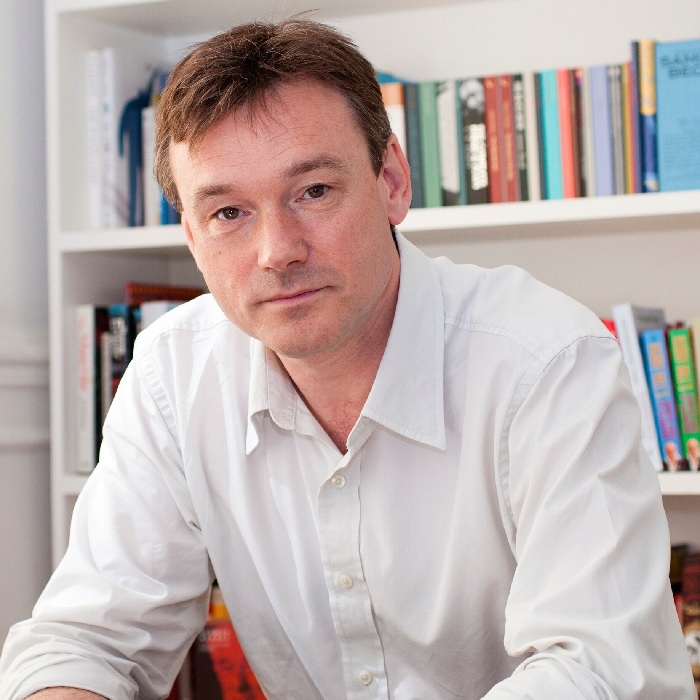 "New technology can mask a truth that existing technology is sometimes better. The printed book remains a significantly more developed piece of technology than the e-book in some important ways, not least in the tactile and design qualities they embody.... Bookselling in its oldness is part of the new: for publishers, partnering with booksellers is to partner with the reader's most reliable and accessible curators. In an age of over-abundance of choice, this makes sense. The mass market is different, of course, but for the core audience of readers for whom books are an essential part of the goodness of life, bookshops are the first and most reliable gateway to the world of reading and writers. As a reader and publisher, I can only celebrate this new turn in the story of books, and at Faber and the Independent Alliance we will seek to prioritize the skills to be a good partner in this renewed and remade ecosystem."
"New technology can mask a truth that existing technology is sometimes better. The printed book remains a significantly more developed piece of technology than the e-book in some important ways, not least in the tactile and design qualities they embody.... Bookselling in its oldness is part of the new: for publishers, partnering with booksellers is to partner with the reader's most reliable and accessible curators. In an age of over-abundance of choice, this makes sense. The mass market is different, of course, but for the core audience of readers for whom books are an essential part of the goodness of life, bookshops are the first and most reliable gateway to the world of reading and writers. As a reader and publisher, I can only celebrate this new turn in the story of books, and at Faber and the Independent Alliance we will seek to prioritize the skills to be a good partner in this renewed and remade ecosystem."






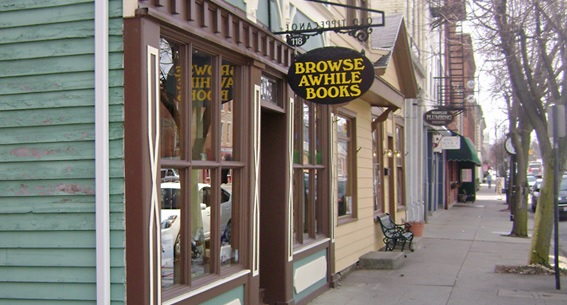 A fire Tuesday
A fire Tuesday
 In response to last week's tragedy in Orlando, Fla., and "to help bookstores around the country
In response to last week's tragedy in Orlando, Fla., and "to help bookstores around the country 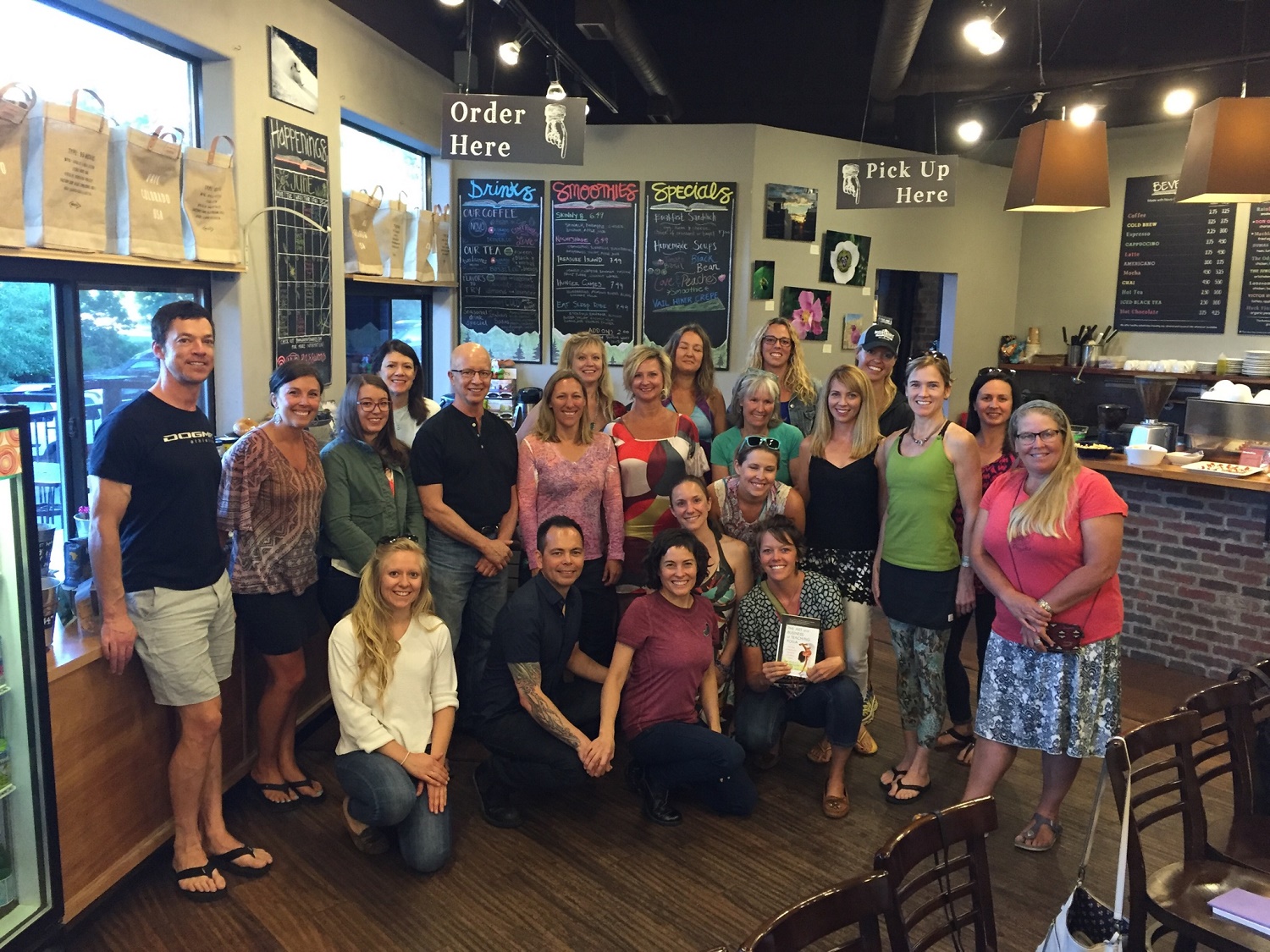
 Empire of Dust
Empire of Dust Arianna Huffington
Arianna Huffington Book you're an evangelist for:
Book you're an evangelist for: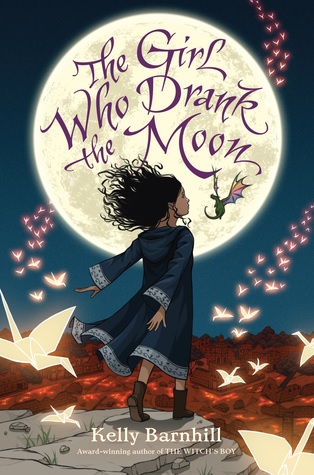 The teen years are hard enough for mere mortals, but 13-year-old Luna holds a dangerous amount of magic she never even knew about... and it's starting to erupt. Luna was accidentally "enmagicked" by Xan, the goodhearted witch who rescued her when she was abandoned as a baby in the annual "Day of Sacrifice" of the Protectorate, or the City of Sorrows, a dismal, foggy place inhabited by "a subdued people, a compliant people, who lived their lives in a saddened haze."
The teen years are hard enough for mere mortals, but 13-year-old Luna holds a dangerous amount of magic she never even knew about... and it's starting to erupt. Luna was accidentally "enmagicked" by Xan, the goodhearted witch who rescued her when she was abandoned as a baby in the annual "Day of Sacrifice" of the Protectorate, or the City of Sorrows, a dismal, foggy place inhabited by "a subdued people, a compliant people, who lived their lives in a saddened haze."